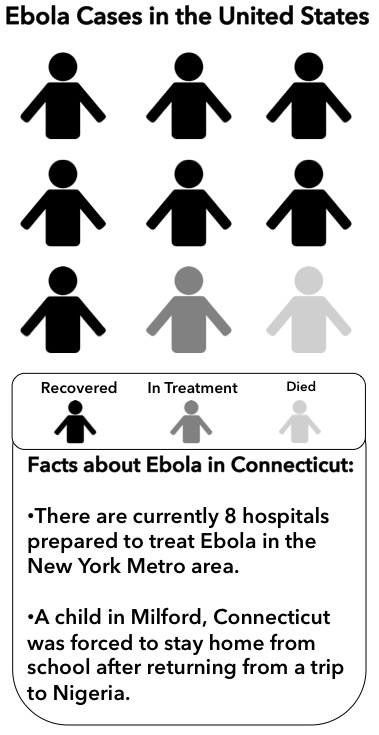Why we will survive the Ebola outbreak
We’re all going to die.
It’s just a given: the world is going to be consumed by Ebola, and millions of people will die off in a “Contagion”-esque manner.
Especially now since Ebola has reached New York City, Staples, along with every other school, office building, store and household in the Tri-State area – heck, the entire United States – should invest in hazmat suits. We might as well all flee to an island in the middle of nowhere. Or better yet, the moon!
As frightening as it is thinking about the virus spreading all over the world, the chances of it developing into a full-blown, apocalyptic catastrophe are slim. So just put down the Purell for a minute, and I’ll tell you why you shouldn’t be worrying.
The Ebola outbreak started in West Africa, specifically in Guinea, Sierra Leone and Liberia. According to the World Health Organization, more than 4,900 people have died from the virus in 2014.
Many Americans didn’t start freaking out until Thomas Duncan traveled from Liberia to the United States. Five days after arriving in the U.S., Duncan developed Ebola-like symptoms, and was taken to Dallas Presbyterian Hospital, only to be released that day. Two days later, he went back to the hospital and was quarantined. Duncan was confirmed to have Ebola on Sept. 30, and died on Oct. 8.
It was clear that the hospital was unequipped to handle this situation; not only did they ignore Duncan’s symptoms the first time around, but the nurses who were caring for him also were not wearing the proper protective gear. Two nurses working with Duncan contracted the virus; fortunately, they are now Ebola-free.
However, on Oct. 23, Dr. Craig Spencer, who had been working for Doctors Without Borders in Guinea, was in New York City when he was confirmed to have Ebola.
Spencer was taken to the Bellevue Hospital, one of the eight hospitals in New York City that is a designated Ebola treatment center. Doctors and nurses at Bellevue have been drilled, practicing how to put on and take off protective gear. Also, their isolation ward for Ebola patients is well-equipped with decontamination rooms and cameras to monitor patients.
Although it is concerning knowing that something deadly is so close to home, Bellevue hospital has taken all the right steps in treating Spencer so far, and it looks like many other hospitals in the U.S. are doing the same to prepare for possible future cases.
I’m not saying that there is a 0-percent chance Ebola will become pandemic across the U.S. If the virus mutates and becomes airborne, then maybe I will jump on the bandwagon and agree that we’re all going to die.
But right now, that doesn’t look like it’s going to happen. There have only been nine Americans who have contracted the virus, and seven of those nine have recovered.
We have to take a step back and realize that we have some of the best medical care here in the U.S. In West Africa, the virus spread so rampantly, partly because of subpar medical care.
Hospitals in the U.S. have learned from the Dallas hospital’s mistakes, so even if more cases arise, they will be prepared to deal with them.
Who knows if the situation will worsen, but for now I think everyone can hold off on buying the hazmat suits.














































